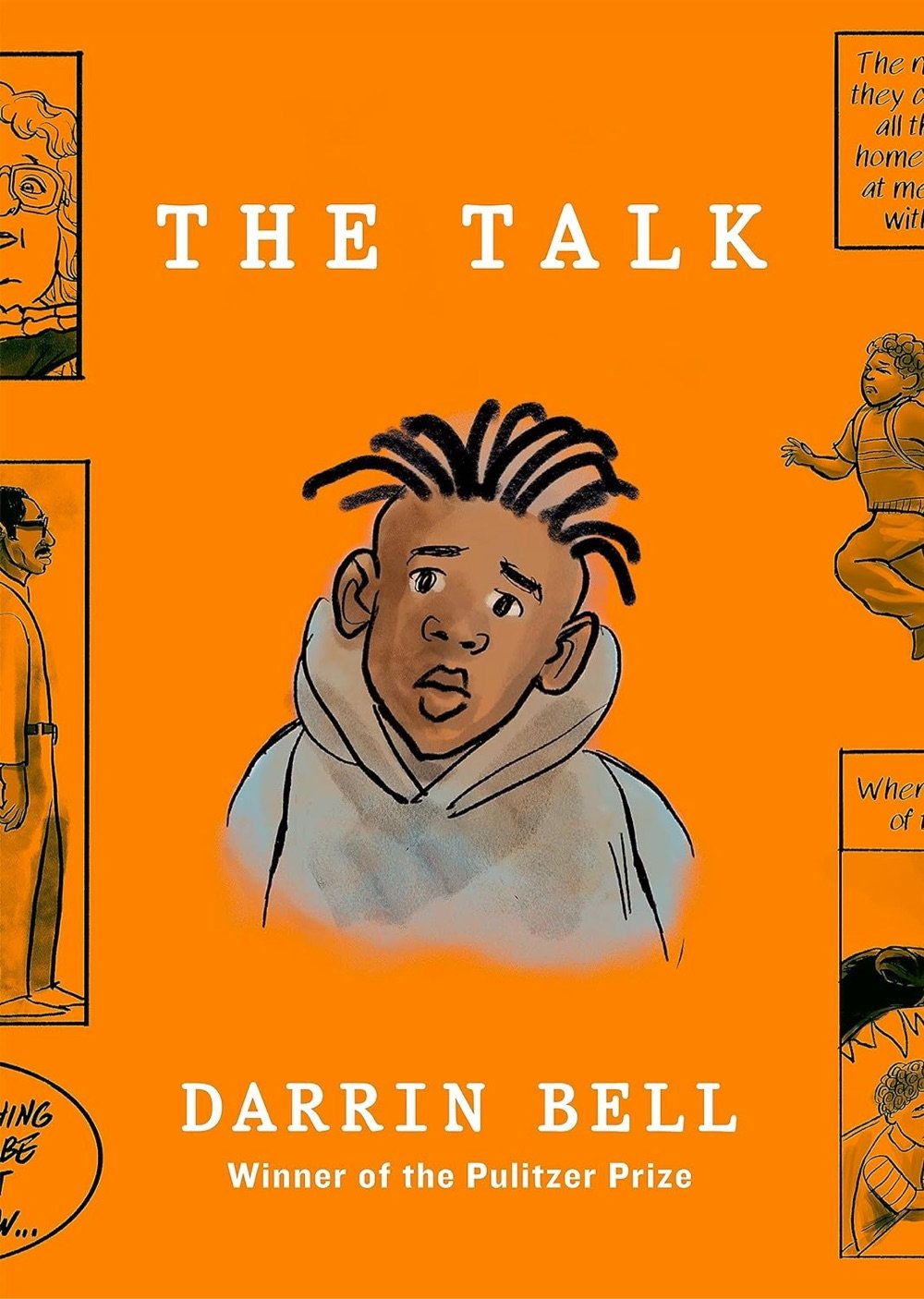The Talk

Darrin Bell, who won the 2019 Pulitzer Prize for Editorial Cartooning, wrote a graphic novel called The Talk about the conversation that parents have to have with their Black children in America about police, racism, and safety.
Darrin Bell was six years old when his mother told him he couldn’t have a realistic water gun. She said she feared for his safety, that police tend to think of little Black boys as older and less innocent than they really are. Through evocative illustrations and sharp humor, Bell examines how The Talk shaped intimate and public moments from childhood to adulthood.
Deirdre Sugiuchi talked with Bell about the book for Electric Lit. I think this question & answer was particularly interesting:
DS: In this book, you’re delving into this dichotomy between how your Black father and grandfather addressed racism, versus the way your Jewish mother advocated for you. Can you discuss how being biracial contributes to your understanding of how whiteness and power operates in America?
DB: Well, first of all, I got to see how both sides of my family censored themselves for different reasons. The Black side of my family would say things around each other that they would never say if a white person was around, not for fear of offending white person, but for fear of the white person doing something to them. White people inherently have power. If they said something offensive, a white person could somehow figure out how to ruin their career, how to get them fired, how to get the police to come over. They could lie. They could twist their words and it would have real, concrete effects on their lives.
The white side of my family, I think sometimes they would forget that I was there. As part of the family, I would see casual racism. They’re Jewish — I’m sure it’s worse with people whose family are white and aren’t Jewish. I’ve heard from a lot of those people directly in the form of hate mail. I know what kind of things they say. But Jews are a little different, because they’ve been discriminated against too. They’ve had atrocious things happen to them, barbaric things. So, they know that what they’re saying is wrong, but they sometimes say it anyway. But whenever my grandmother would seem to realize or remember that I was in the room, she censored herself, but I could tell it was only to preserve my feelings. It wasn’t because she was afraid I would ever do anything to her. She knew I didn’t have any power over her.
See also: Black Parents Talk to Their Kids About the Police.





Stay Connected